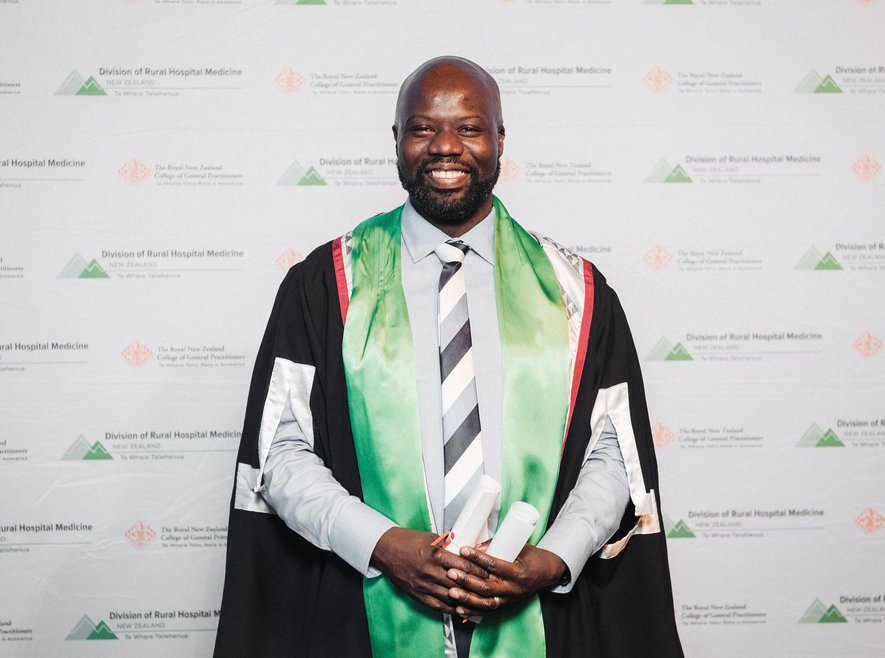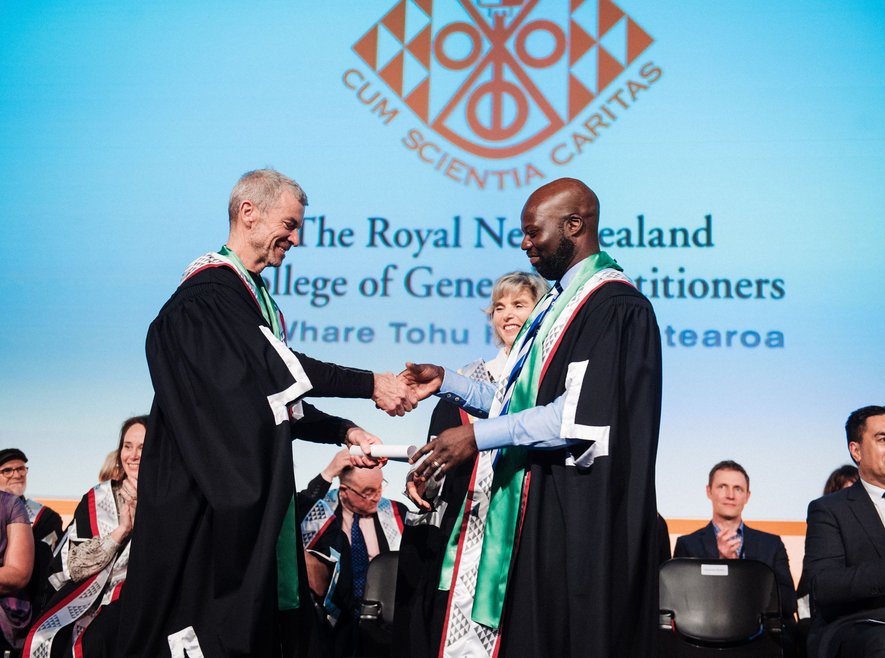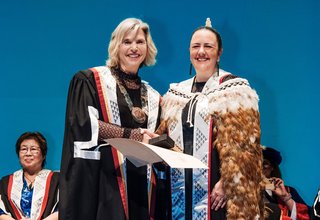Dual Fellowship
Many registrars choose to study both general practice and rural hospital medicine at the same time to earn a Dual Fellowship.
The Dual Fellowship pathway allows you to develop a wide set of complementary skills and have lots of flexibility about where you work in the future. It normally takes five to six years to finish this training programme. As with the General Practice Education Programme (GPEP) and the Rural Hospital Medicine training programme, you can study part-time or put your study on hold for up to three years if you need to.
How you will learn
Your learning will mainly happen on site in hospitals and general practices around the motu as you gain the clinical experience you need to be successful.
You must do one six-month run in a rural general practice. You must also do two six-month runs in rural hospital medicine, in two different sites, where at least one is a level three rural hospital. Registrars usually do one of these runs at the beginning of their training and one at the end.
You will also:
- complete the rural hospital medicine academic papers taught primarily by the University of Otago unless you have recognition of prior learning. (The Amjad Hamid Medal winner is chosen from one of these papers)
- work with and learn from your rotational supervisors, educational facilitator, and medical educators
- receive feedback from your peers and patients
- develop a professional development plan and reflective portfolio of learning experiences.
Apply to study for Dual Fellowship
To be accepted into the Dual Fellowship training programme you must apply to both GPEP and the RHM training programme separately and be accepted into both courses.
Applications open every year in February and close in April.

Dual Fellowship training programme structure
Clinical attachments
The core of the Dual Fellowship training programme is the time you will spend in clinical attachments working in hospitals and general practices and learning the skills of the two different specialties.
You must spend at least four years working in full-time equivalent (FTE) placements in accredited hospitals or practices unless you have approved recognition of prior learning.
FTE is an eight-tenths or more clinical workload, and one run is the same as six months FTE mahi.
You must do:
- two runs in general practice while you are doing GPEP year 1 programme requirements (at least one run must be in rural general practice)
- two runs in rural hospital medicine, in two different sites, with at least one in a level three hospital
- one run in general medicine (you can do three months of this in cardiology or respiratory medicine)
- one run (six months FTE) in emergency medicine
- one 0.5 run (three months FTE) in paediatrics
- one 0.5 run (three months FTE) in anaesthetics and/or intensive care
- a further one run in general practice, during which the general practice Fellowship assessment visit is conducted.
As a Dual Fellowship registrar, you can claim up to 18 months against the RHM Training Programme clinical run requirements for general practice experience that you gain in GPEP, if at least six months of your GPEP training is done in rural general practice.
This clinical experience component is credited against the RHM programme’s clinical experience requirements for compulsory six months in rural general practice and 12 months of elective experience.
Academic component
As well as your clinical runs you will need to do the rural hospital medicine papers taught at the University of Otago.
When you have finished these papers, your academic mahi is finished. You don’t have to do any of the papers or courses that GPEP registrars must do.
Learning activities
You will also learn by:
- keeping a learning plan and reflective record
- working with your rotational supervisors, Medical Educators, and your Educational Facilitator
- seminars, presentations, and in-practice visits
- patient feedback
- keeping a reflective record of visits to community services
- reviewing video consultations with peers and kaiako.
Assessments
During your Dual Fellowship you will be assessed by:
- your GPEP clinical and written exam grades
- grades for your University of Otago rural hospital medicine papers
- 12 mini clinical evaluation exercises
- reports by your rotational supervisor and Educational Facilitator
- a Structured Assessment using Multi Patient Scenarios (StAMPS) examination
- Feedback from several different colleagues and patients.
Fellowship assessment visit
After you have finished all the required clinical and academic mahi, you will undertake two Fellowship assessment visits (one visit for GPEP and one visit for RHM) and, if successful, you will be awarded Fellowship of the Division of Rural Hospital Medicine (FDRHMNZ) and Fellowship of The Royal New Zealand College of General Practitioners (FRNZCGP). Congratulations!
Everyone who is awarded Fellowship is also invited to an annual graduation ceremony where they are presented to the President of the College. Dual Fellows are also presented to the Chair of the Division of Rural Hospital Medicine.


The College's 2022 Workforce Survey was completed by 70 percent of the College's membership (3,488 respondents) and is carried out to gain demographics of the current workforce, as well as important insights into how specialist GPs and rural hospital doctors feel about their work.